SUMMARY
This is AI generated summarization, which may have errors. For context, always refer to the full article.

MANILA, Philippines – In the past weeks, we saw the various social media accounts of Apollo Quiboloy, the founder of the Philippine megachurch Kingdom of Jesus Christ (KOJC), get taken down by both YouTube and TikTok to comply with US sanctions laws and as enforcement of their own community guidelines.
Quiboloy was included in the US sanctions’ list in December 2022 under the US Executive Order No. 13818 of 2017, which enlarged the scope of who may be sanctioned under the Global Magnitsky Act of 2016.
The EO expanded the 2016 act in that it gave the US government the power to sanction non-US individuals accused of “serious human rights abuse” and “corruption” – a change from prior narrower definitions of sanctioning those with “gross violations of internationally recognized human rights” and “significant acts of corruption.”
Quiboloy’s case was notable for “marking the first time that sex trafficking and rape were the central abuses sanctioned under Global Magnitsky,” according to Human Rights First (HRF), an international human rights organization which assists non-government organizations (NGOs) in understanding the Magnitsky act, and how to prepare recommendations and reports to the US government.
While YouTube and TikTok have banned Quiboloy and his various online assets, with the former specifically banning the channels for his media organization SMNI, and Kingdom of Jesus Christ, Facebook has been far quieter.
When news of YouTube and Tiktok’s bans broke, some users would comment about how Facebook or Twitter should follow suit. Some, especially in the pro-Quiboloy quarters, would protest the termination.
Legally, what justified YouTube and TikTok to proceed with the ban?
As Human Rights First explained in an FAQ, EO 13818 also allows the US government to sanction any person, including US persons, that have “have materially assisted, sponsored, or provided financial, material, or technological support for” persons in the sanctions list or the violative activities of the sanctioned persons.
The rule specifically prohibits “technological support” in its text, and that means, there’s a chance for the tech platforms to be held accountable by the US government if they keep providing services to a sanctioned individual.
(A likely scenario? It’s hard to say given the complexities of the relationship between the US government and giant tech platforms. TikTok, for instance, is already at risk of being banned in the US over issues of national security and espionage by Beijing.)
Quiboloy is seen preaching in many of his videos on his channels.
But a major source of concern here is that Quiboloy’s case deeply involves how he allegedly used his power as a religious leader and his church KOJC, along with other KOJC leaders, to supposedly coerce female victims to have sex, and solicit donations for a bogus charity.
Quiboloy’s power is rooted in his ability to preach and communicate, and thus, being able to remain on an online platform allows this continuance of influence and power that the US government alleges has been gravely abused.
To some, it is free speech denied; to some, it’s a welcome curtailment of the harmful power of an individual with a case believed by the US government has evidence solid enough that it wagered, partly, its reputation.
What’s the evidentiary standard for sanctions?
The HRF explains that via EO 13818, “The type of information or evidence that can be considered [in sanctioning recommendations] need not meet the formalities required in a court of law for admissible evidence.” However, when approving a sanctioning, the US government “must be able to defend potential legal challenges to designations in US courts” – which is to say, it’ll go to court if it has to, to defend a designation, believing it has enough credible evidence against the individual in question.
This considered, YouTube and TikTok, essentially chose to side with the US sanctioning, reinforced by an FBI warrant, the US court indictment, while risking accusations of censorship.
Facebook, on the other hand, has gone the other way, as it continues to host Quiboloy’s page with 1.2 million followers, the preacher’s biggest online avenue.
Pending a conviction or an acquittal, sanctions are meant to be something to encourage a positive change in corrupt or abusive behavior, the HRF explains, and not a punitive measure such as a court sentencing. At the very least, Facebook could be accused of playing an empowering role for Quiboloy, counter to the purpose of a sanction.
Facebook has been here before. In 2017, Facebook followed a Magnitsky sanction, kicking off Ramzan Kadyrov, the authoritarian leader of the Chechen Republic since 2007, from Facebook and Instagram where he had, at the time, 4 million followers combined. Kadyrov was sanctioned for reports of torture, kidnapping, murder, and other human rights abuses.
Facebook told the New York Times then: “We became aware and have now confirmed that the accounts appear to be maintained by or on behalf of parties who appear on the US Specially Designated Nationals List and thus subject to US trade sanctions.”
“For this reason, Facebook has a legal obligation to disable these accounts,” the company said.
Facebook also faced questions of censorship at the time, and selectiveness on who to ban on the sanctions list.
On these censorship accusations, and perceived inconsistencies, Facebook told The Guardian: “We operate under the constraints of US laws, which vary by circumstance.”
“We will continue to work with appropriate government authorities to ensure we meet our legal obligations, and to explore options for complying with the law in a way that maximizes free expression on our platform and keeps people safe,” the company said.
It’s a tiny glimpse into Facebook’s mindset – and one that’s admittedly from many years back in 2017. But if these remain true for the company, what we’re understanding is that Facebook’s decision to keep Quiboloy on the platform is the best decision that it believes complies with the law, maximizes free expression, and keeps people safe.
TikTok and YouTube deemed otherwise.
Whether a few giant platforms should actually be society’s arbiters on who gets a voice and who doesn’t is a topic for another time. But we could look at this from a human perspective:
It’s perhaps naive to believe giant companies work on moral grounds, but TikTok and YouTube’s moves are a win for Quiboloy’s alleged victims who have braved going public to expose what they saw as a wrong, and a loss for the still powerful and wealthy Quiboloy, especially relative to his accusers.
Facebook’s silence on the matter favors only the preacher. – Rappler.com
Add a comment
How does this make you feel?
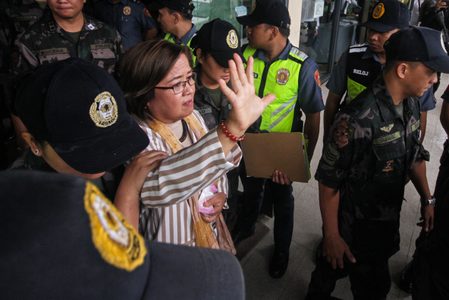





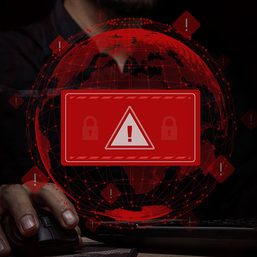
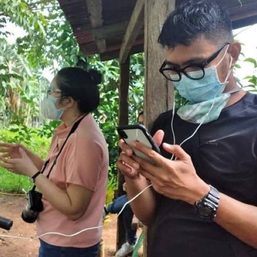
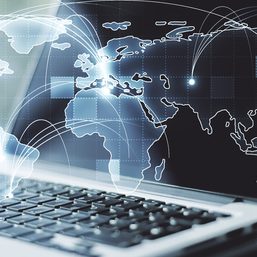
![[OPINYON] Tungkol sa naging viral na social media conjecture](https://www.rappler.com/tachyon/2024/07/thought-leaders-conjecture-07262024.jpg?resize=257%2C257&crop_strategy=attention)
![[DECODED] The Philippines and Brazil have a lot in common. Online toxicity is one.](https://www.rappler.com/tachyon/2024/07/misogyny-tech-carousel-revised-decoded-july-2024.jpg?resize=257%2C257&crop_strategy=attention)
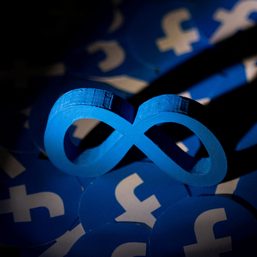


There are no comments yet. Add your comment to start the conversation.